AI and Space Exploration: The Future of Astronomy
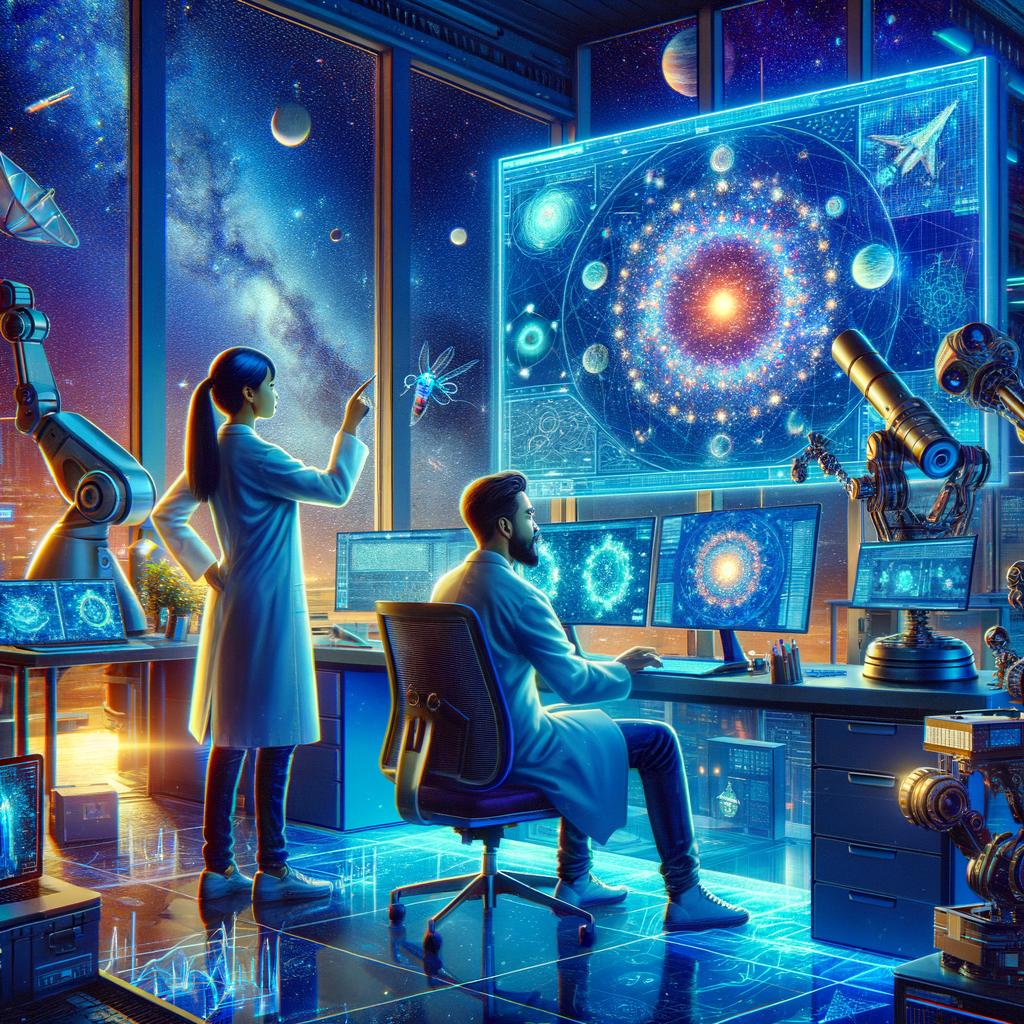
As we find ourselves firmly planted in the era of Artificial Intelligence (AI), we're beginning to uncover exciting overlaps in fields that previously seemed worlds apart. One such compelling intersection lies between AI and space exploration. The birth of AI in the cosmic realm marks a significant milestone in the history of astronomy, having revolutionized certain aspects already. Unveiling new depths, AI helps us crack open previously inaccessible levels of understanding. How? By changing the way we study celestial bodies and outer space phenomena. Through AI, we've seen breakthroughs and advancements that have set unprecedented standards in the field. Think smarter data interpretation, and even predictive analytics for cosmic events! Space agencies like NASA have been quick to leverage these, integrating AI into their ongoing projects. But besides these visible improvements, AI is also working behind the scenes — aiding advanced navigational technologies, simplifying data management, and even assisting with satellite maintenance. As we look to the future, AI's role only seems to be expanding, promising to unlock more of the universe's mysteries, streamline deep space missions, and maybe even find us some extraterrestrial neighbors! Of course, this isn't to gloss over the challenges it faces. From ethical dilemmas to technical improvements, there's still a galaxy of issues needing attention. Yet, one thing is clear - AI in space exploration is not just a passing comet, but a trend that's here to shape the future of the cosmos!
The Concept of AI in Space Exploration
Artificial Intelligence and its relevance in space science are inextricably linked. AI, originally developed for use on Earth, has found a significant place in the vast expanse of space. During the early years of space exploration, which were largely manual and traditional, AI was a concept of the future. However, with the intense technological revolutions unfolding globally, the inception of AI in space exploration became inevitable. Initially, AI's application was to automatically control spacecraft and interpret telemetry. It later expanded to include robotics, prediction of equipment failure, guiding autonomous robots on Mars, and determining optimal paths for spacecraft.
The revolution that AI has carried out in Astronomy is profound. With the advent of AI, the capability to analyze massive amounts of observational data has significantly improved. Tools like neural networks and machine learning techniques have transistorized the effort required for sifting through data tremendously. Notably, AI has found applications in classification of astronomical objects, detecting gravitational waves, and making predictions about cosmic occurrences. One of the highlights of AI advancements is the Kepler Space Telescope and its use of AI to pinpoint new exoplanets with remarkable precision. Through AI, the scientists have not only managed to push the frontiers of space exploration but have also set new standards and benchmarks that will guide future endeavors in this field.
How AI is Revolutionizing the Field of Astronomy
AI's impact on astronomy is profound and continues to reshape the field in unprecedented ways. Its potential has been established, incrementally transforming the field and elevating it to new frontiers. For instance, AI technology has been instrumental in handling vast amounts of data collected by telescopes, making it easier to identify specific patterns or events that, without AI, might have remained obscured or simply too time-consuming to analyze.
AI has not just changed the face of astronomical studies, but it's actually reshaping it. From precise celestial mappings to spectral analysis to identifying celestial bodies, AI has made daunting tasks achievable, expediting the process where human potential could have possibly faltered. Remember Kepler-90i? It was an AI that made this discovery possible, by sifting through data collected by NASA and identifying an exoplanet, adding to our knowledge of the universe.
Moreover, several significant advancements and breakthroughs in astronomy have been ushered in, thanks to AI. For example, AI helps astronomers predict the probability and frequency of meteor showers, calculate the trajectories of asteroids, and even assess the longevity and life cycles of stars. This contributes to a growing repository of knowledge regarding the universe.
However, the role of AI doesn't end there, it is steadily setting new benchmarks. With its increasing integration into large scale astronomy projects like the Square Kilometer Array (SKA), it's envisaged that AI will revolutionize the way we comprehend and explore the universe. The SKA will generate enormous data sets - an astronomical treasure hous; managing which, would necessitate superior AI models and mechanisms.
In fact, the significance of AI extends to space explorations beyond our own solar system. The Google and NASA partnership that led to the discovery of two exoplanets around distant stars stands as a testament to this. AI identified signals which were otherwise too subtle for traditional data analysis methods to notice.
As the field continues to evolve, AI will continue to break ground in enabling data analysis at an unprecedented level, skimming through countless galaxies and stars, making sense of cosmic events and perhaps, even unraveling the greatest mystery – the existence of alien life. One thing is clear, the future of astronomy is brighter and more exciting than ever, with AI leading the way.
Current Applications of AI in Space Exploration
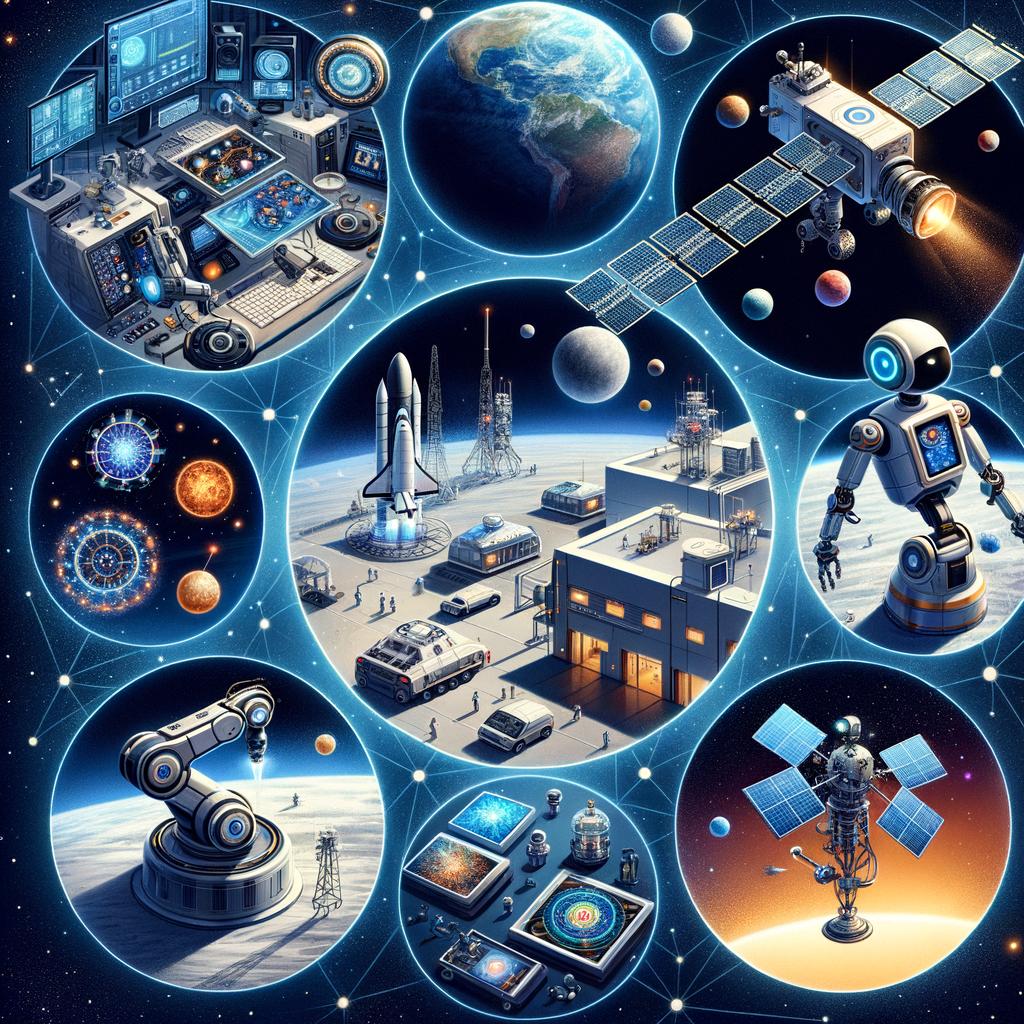
In today's world, the impressive uses of Artificial Intelligence (AI) in space exploration cannot be overlooked. One of the most notable examples is NASA's use of the technology, as it has leveraged AI to manage the vast amount of data it gathers from Earth-observing satellites. These advancements have given way to several breakthroughs, including precursors to earthquakes, severe weather conditions, and even changes in the Earth's ecosystems over time. This usage, thus, ensures swift, accurate data analysis that helps in making timely and informed decisions.
Other international space agencies are also utilizing AI for similar activities. For instance, the European Space Agency (ESA) employs AI to fuel its Mars rovers, allowing for autonomous navigation of the harsh Martian terrain, optimizing power usage, and carrying out scientific experiments. Back on Earth, AI has been pivotal in enhancing the operations of planetary missions by facilitating autonomous control and navigation on limited communication bandwidth. The intersection of AI with space exploration underscores the rapidly growing symbiosis between these two fields – an interaction which is all set to revolutionize our future forays into the cosmos.
How AI and Space Exploration Work Hand in Hand
Artificial Intelligence (AI) and space exploration have found common ground in their shared aim to perceive and understand the vast and complex array of data generated from studying the cosmos. AI brings its capability to analyze huge datasets, identify patterns, and generate insights to help space exploration advance more efficiently. For example, the Mars rover uses AI to guide its exploration and avoid obstacles, making the process faster and less risky. Similarly, AI's role in observatory telescopes cannot be overstated - it aids in designing flight paths, making timely corrections, and reacting to sudden changes in space phenomena.
AI is also deeply embedded in many operations involved in space expeditions. Its prevalence in robotics has led to achievements such as NASA's Mars rovers and SpaceX's rocket landings. In both instances, AI was critical in carrying out tasks that are hazardous or impossible for humans, such as exploring inhospitable terrains or landing back on droneships after a successful launch. Their functions go beyond just gathering information; they make real-time decisions and autonomously ensure their own safety based on AI analysis of their environment.
Interestingly, AI's contribution to space missions doesn't stop with involvement in operations and robotic exploration. It plays a crucial role in taking care of humdrum but essential aspects such as satellite maintenance and data management. For instance, the European Space Agency uses AI to predict when satellites might fail and maintains them proactively. On the other hand, AI offers efficient data management solutions for the gargantuan amounts of data generated from space. For instance, the Square Kilometre Array (SKA), an international effort to build the world’s largest radio telescope, plans to use machine learning to analyse the vast amounts of data they will be generating.
Furthermore, the future of AI and space exploration seems intertwined, as both aim to achieve deeper understanding and unravel mysteries. AI plays a critical role in breaking down ambiguous data and making useful predictions. With deep learning algorithms, scientists have been able to identify new exoplanets in the Kepler Data Set. This synergy between AI and space exploration seems to be the starting point in a mutually beneficial relationship, pushing the boundaries of what we know about our universe.
Unlocking the Mysteries of the Universe with AI
Artificial intelligence is playing an instrumental role in unveiling the mysteries of the cosmos that were once thought to be unfathomable. From deciphering the countless data emitted by celestial bodies to predicting their behavior, AI is stepping into new frontiers and making significant strides in our understanding of the universe. Using high-power computational tools, AI algorithms can analyze cosmic big data faster and with more precision than ever before, aiding scientists in uncovering cosmic secrets previously hidden beyond our grasp. For example, phenomena such as black holes, neutron stars, supernovae, and the formation of galaxies can now be studied in much greater detail, offering revolutionary insights into our Universe.
AI's role doesn't end with data analysis. It's fostering advancements in predictive analysis and unlocking future cosmic events, marking a new era for astronomy. AI's capabilities are enabling researchers to make realistic projections and predictions about cosmic events that were once unpredictable. Using advanced machine learning techniques, AI can identify patterns in astronomical data that would have otherwise been missed, leading to accurate predictions about the orbits of asteroids, supernovae explosions, and much more. One such instance is the discovery of exoplanets by NASA's Kepler spacecraft, made possible by AI technology. In short, AI is not only demystifying the universe's enigmas but also paving the way toward a richer and more in-depth understanding of our cosmos.
The Role of AI in Predictive Analysis of Cosmic Events
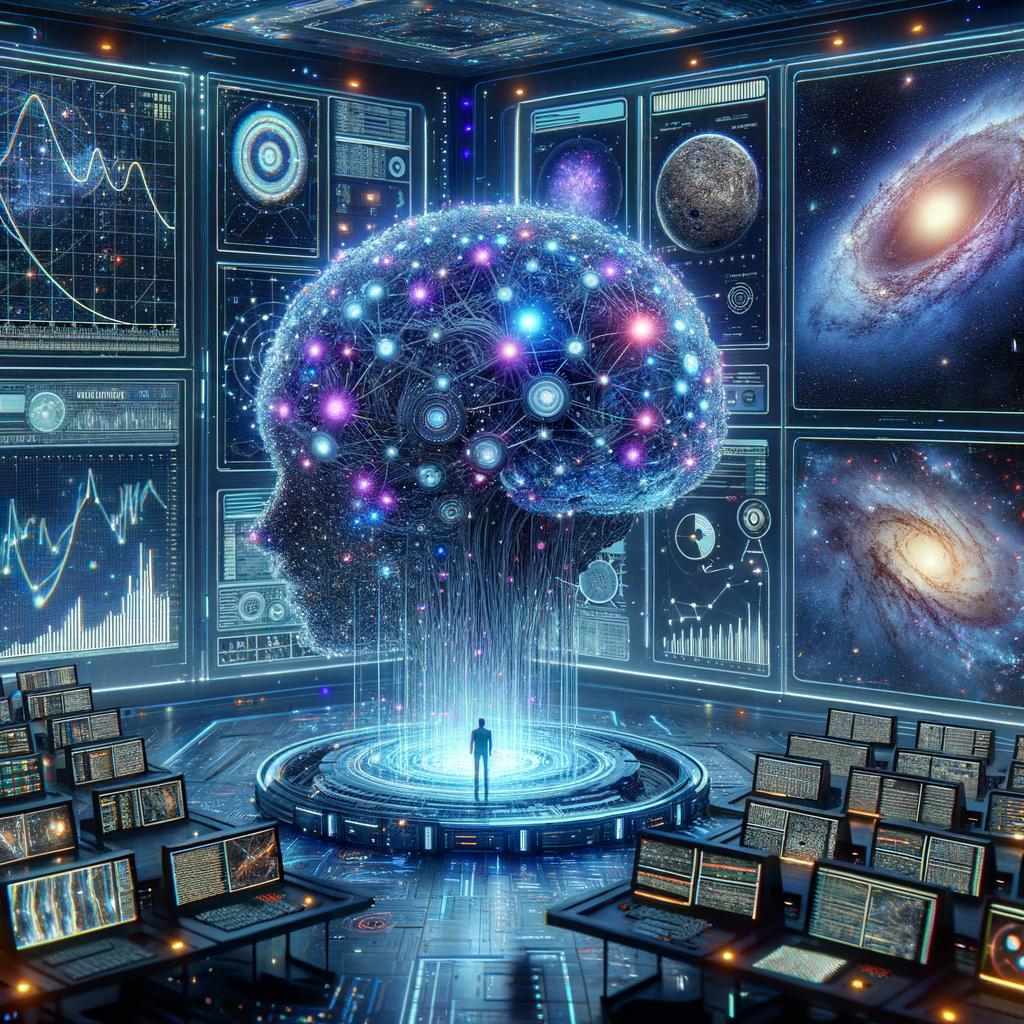
Artificial Intelligence plays a critical role in making predictive analyses of cosmic events. Its functionality lies in its ability to swiftly process vast quantities of data. Unlike human astronomers, AI systems can analyze numerous data sets quickly, identify patterns and make accurate predictions based on these. For example, in 2019, an AI system developed by astrophysicists at the University of Texas at Austin predicted that our solar system would be directly hit by a supernova in the next 50 years, validating earlier hypotheses by human astronomers. These predictions, showcasing the potential and power of AI, not only allow us to prepare for such events but also advance our understanding of the universe.
AI achieves successful predictions of cosmic phenomena by using algorithms trained on data drawn from past cosmic occurrences. The remarkable success of AI in this aspect can be illustrated with the instance of AI detecting fast radio bursts (FRBs), which are brief pulses of radio waves coming from far outside our galaxy. In 2017, an AI algorithm called 'Breakthrough Listen' developed by University of California, Berkeley detected 72 new FRBs from a mysterious source some 3 billion light-years away from Earth. This marked a significant breakthrough made possible by AI, underlining its importance in cosmic event prediction. Such examples highlight the critical role of AI in predicting cosmic events, redefining the future of astronomy.
AI's Contribution in the Search for Extraterrestrial Life
Artificial Intelligence is accelerating our search for extraterrestrial life, adding an extra layer of speed and efficiency to the hunt. Sophisticated AI systems analyze immense volumes of cosmic data, sifting through potential signals and separating the noise from the relevant information. These AI technologies are highly advanced and can diagnose and interpret faint signals that might be overlooked by traditional methods. The SETI Institute's AI model, for example, captured 72 previously undetected fast radio bursts from a mysterious source 'FRB 121102' some 3 billion light years away from Earth. Moreover, Breakthrough Listen, a scientific research program aimed at uncovering evidence of civilizations beyond Earth, significantly strengthened its search by employing machine learning algorithms. These algorithms scan the skies for techno-signatures, or signals indicating advanced civilizations, proving that with AI, our efforts to connect with life beyond our planet become a more tangible reality. Big data technologies combined with AI are indeed providing a robust foundation for the detection of extraterrestrial life by enhancing the precision, pace, and potential of space exploration missions. Whether life beyond Earth exists or not, it's the AI that is going to find it.
Data Management in Astronomy: The Power of AI
Artificial intelligence has a significant role to play in the management of astronomical data sets, a task traditionally riddled with complexity due to the sheer volume and nature of the data. Astronomical observations, telescope operations, and even simulation exercises generate immense quantities of data, requiring efficient management for improved accessibility and analysis. AI comes into play as a transformative tool, bringing ease and precision to data handling within astronomy. A concrete example lies in NASA's Frontier Development Lab, where AI has been harnessed to analyze vast sets of solar data, thereby facilitating more accurate predictions of solar storms.
Furthermore, Artificial intelligence technology has eliminated several manual procedures that were formerly time-consuming and prone to human errors. With its application, the process of managing data related to thousands of galaxies, stars, and other celestial bodies has become significantly more streamlined. Advanced machine learning algorithms can now process this data and identify patterns more quickly than traditional methods. An excellent instance of this is how scientists at the University of California, Berkeley, used AI to sift through years of Kepler Space Telescope data to identify a new planetary system. This showcases that AI, with its precise data handling and analytic abilities, truly holds immense power within the sphere of astronomy.
AI and Satellite Maintenance: An Unprecedented Collaboration
The enthralling collaboration between artificial intelligence and satellite maintenance unveils a revolutionary new paradigm in space exploration. Through machine learning and advanced algorithms, AI has been a game changer in predicting and preventing potential issues with satellite integrity, mitigating the risk of catastrophic failures and avoiding expenses linked with emergency repair missions. NASA, for instance, has pioneered this developments by implementing AI to monitor their large fleet of satellites. AI meticulously analyzes vast amount of data from each satellite, pinpointing any anomalies with efficiency that transcends human capabilities. AUPEO's AI system, for instance, is known to predict satellite failures a full three months in advance, highlighting the profound capabilities of AI in this area. Beyond just maintenance, AI offers promising breakthroughs in terms of satellite mission optimization, recalibrating satellites’ course to maximize exploratory gains. These unprecedented collaborations serve to emphasize the pivotal role AI plays in the modern age of space exploration, and symbolize a significant milestone in humanity's cosmic journey.
Future Prospects: AI and Deep Space Missions
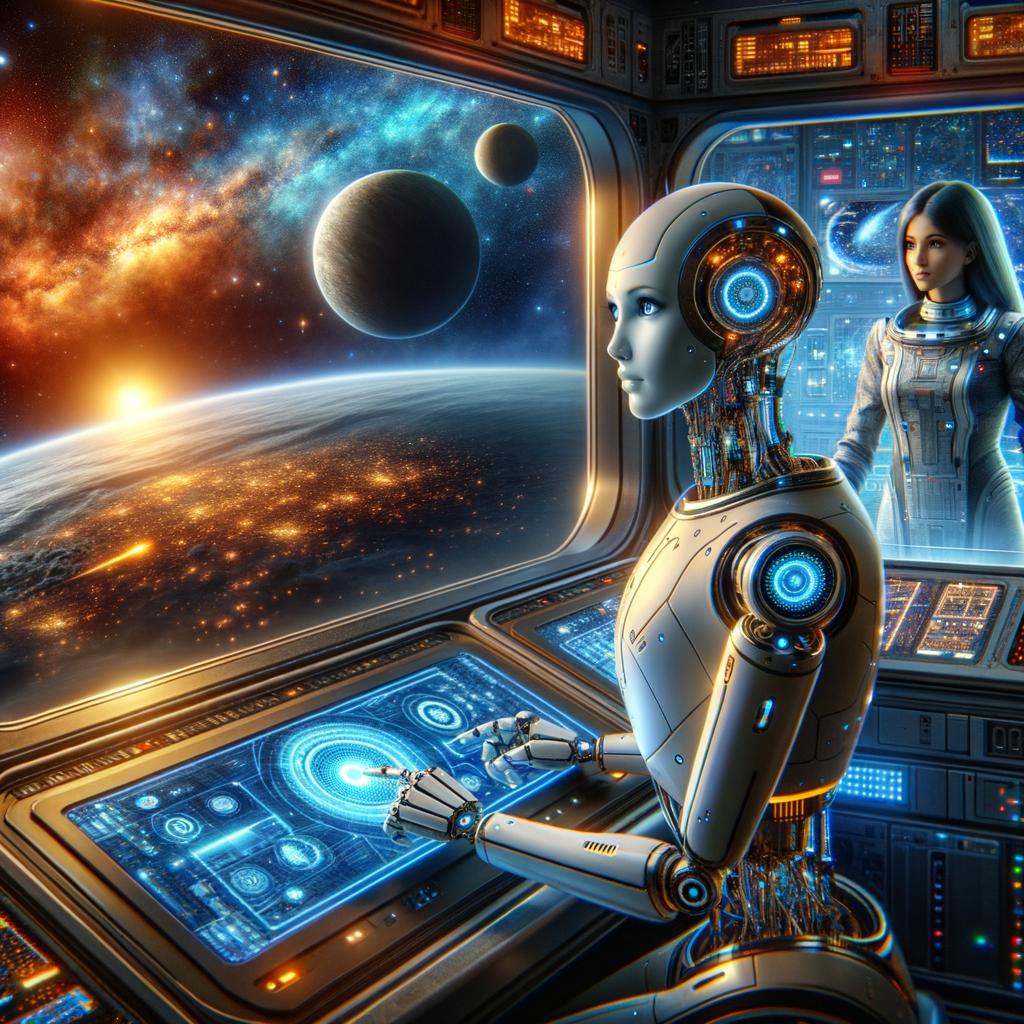
The role of AI in deep space missions is evolving constantly and holds great potential for future undertakings. As AI is more pilot-friendly, it can handle complex tasks like navigation, communication, and systems monitoring, reducing the load for astronauts. This potential is already being realized in ambitious endeavors, such as NASA's Mars rovers and probes which have been equipped with AI algorithms for autonomous obstacle detection and avoidance. For instance, Mars 2020 rover, Perseverance, utilized the Terrain-Relative Navigation system, an AI-powered technology, to select a landing site in real-time.
Experts believe that future space missions will increasingly rely on AI to conduct sophisticated operations. These missions will require autonomous systems capable of tackling unforeseen challenges and making independent decisions, and AI has the ability to perform dynamic task-switching, fault management, and predictive maintenance. For example, the Europa Clipper mission, slated to launch in the 2020s, will use AI for its operational autonomy in the harsh and distant environment of Jupiter.
However, the marriage of AI and space exploration doesn't just stop at deep space missions. AI has a crucial role in determining the success of observation missions, reconstruction of 3D maps, and predicting space climatology variations. The Event Horizon Telescope project, for instance, used AI to reconstruct the first ever image of a Black Hole.
Lastly, one area where the impact of AI on future space missions is particularly intriguing involves the search for extraterrestrial life. AI's ability to sift through vast amounts of data makes it an invaluable tool in this pursuit. Scientists from the SETI (Search for Extraterrestrial Intelligence) Institute have begun using Machine Learning, a subset of AI, to develop models and algorithms that can detect patterns or anomalies in cosmic signals—bringing us a step closer to potential extraterrestrial discovery.
Challenges for AI in the Realm of Space Exploration
Despite the groundbreaking achievements of AI in space exploration, it's pertinent to acknowledge the obstacles that come with it. Implementing AI in space missions presents unique challenges, such as ensuring the robustness and reliability of AI systems in the harsh and unpredictable conditions of outer space. The stakes are incredibly high in such missions; consequently, the AI must function flawlessly, as any errors can result in catastrophic outcomes and massive financial losses.
Furthermore, there are areas within space exploration that require AI to further evolve and improve. For instance, automation is essential in deep space missions due to the vast distances involved. However, the current AI technologies are still not perceptive and adaptable enough to perform fully autonomously in unfamiliar and dynamic space environments. The real-time decision-making capability is another aspect that needs improvement, as it is critical for responding to fast-developing and potentially hazardous situations that can occur in space missions. These are examples of challenges that need to be addressed to harness the full potential of AI in space exploration.
AI Ethics in Space: Prepares for Unforeseen Issues
The role of ethics in AI and space exploration should not be underemphasized. It's crucial to anticipate potential ethical dilemmas well in advance in the realm of AI-augmented space exploration, especially because of the nature of space missions where mistakes could have profound consequences. The capabilities of AI, for instance, to launch autonomous vehicles or to analyze vast amounts of data without clear supervision raises a host of ethical challenges. One such concern could be decision-making during high-risk situations where AI might prioritize mission success over safety.
Seed AI, an AI capable of self-improvement and potential outpacing of human intelligence, poses another ethical question — its broad deployment in space exploration could potentially lead to unforeseen complications that humanity would be ill-equipped to handle. Therefore, creating a reliable ethical framework around AI's application in space exploration becomes paramount. The task calls for all stakeholders, including space agencies, tech companies, scientists, and ethicists, to work collaboratively. Through thoughtful leadership and careful execution, we can ensure AI is used responsibly, advancing space exploration while respecting our ethical norms.
Building the Future: AI and Space Exploration
Looking ahead, we envision a future where artificial intelligence (AI) is the cornerstone of space exploration. This forward-looking view is influenced by notable trends that point towards AI's increasing dominance in this field. One example of these trends is the rise of machine learning, which is shaping the way AI is utilized in space science. In addition to machine learning, innovative technology platforms, such as quantum computing and neural networks, are becoming more prevalent in the field. Such advancements are opening doors for sophisticated exploratory tools and applications that were once unthinkable. Key movements in the industry, such as SpaceX's relentless pursuit of reusable rockets using AI-guided systems, underscore the crucial role AI is set to play in forthcoming space programs. Gradually, we notice that AI is not only a complementary technology but is shaping to become the core of future space missions.
Trends Shaping AI's Role in Upcoming Space Programs
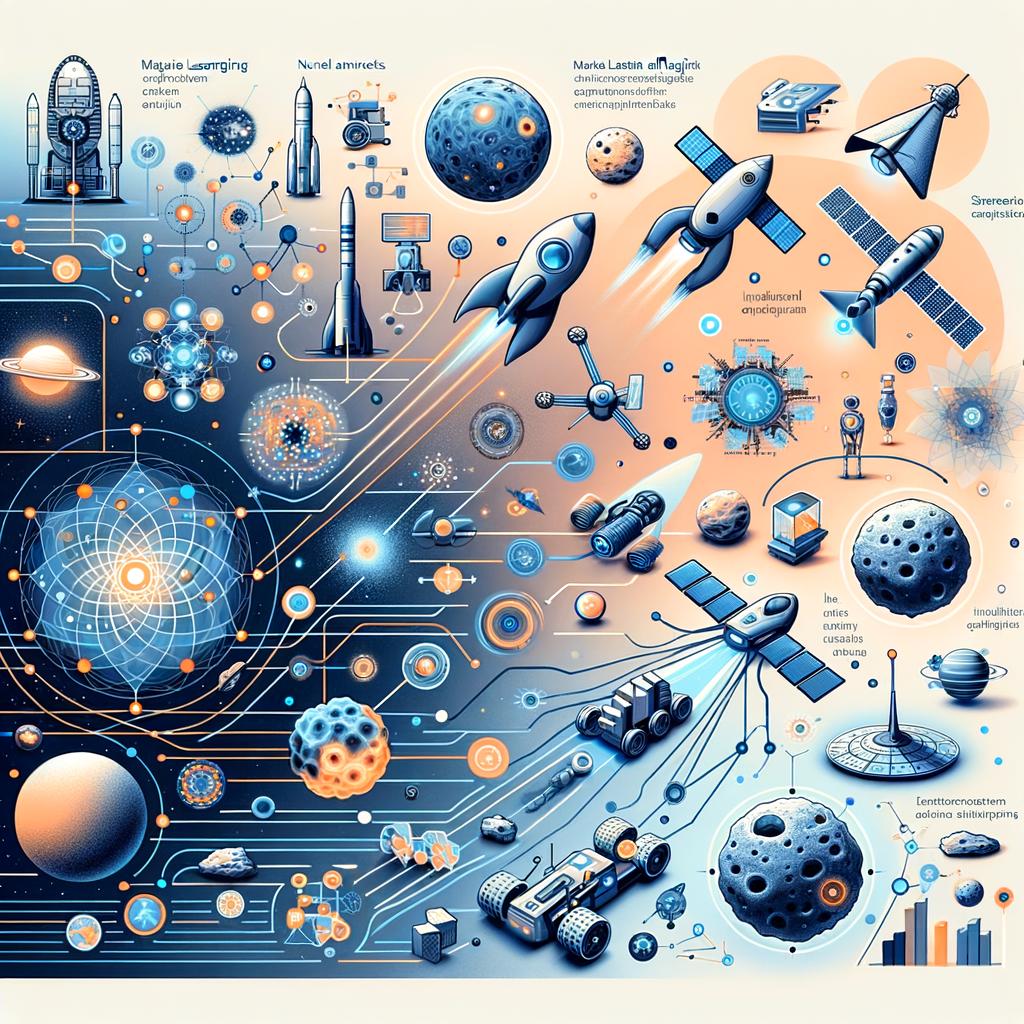
Keeping an eye on the trends is vital in understanding the increasing prominence of Artificial Intelligence in space science. With technological advancements moving at a rapid pace, we see a future where AI plays a key role in every exploration. One notable example is NASA's Mars Helicopter, Ingenuity, that used AI to navigate the martian landscape independently.
Emerging technologies are also playing a significant role in shaping AI’s future. Machine learning and unmanned autonomous systems are among tech developments deciding the course of AI's use in space study. For instance, the Hubble Space Telescope utilizes AI and machine learning to categorize galaxies and observe cosmic events.
Lastly, movements within the industry point to AI’s undeniable dominance in upcoming space programs. Many space agencies worldwide now have specific AI research wings or collaborations. As an example, the European Space Agency's (ESA) PhiLab, is exclusively dedicated to AI and future-oriented satellite data interpretation.
Data-driven decision-making, predictive analysis, and autonomous operations are some patterns that mark AI's ascending trajectory. Notably, the Rosetta mission accurately landed on a comet, relying on AI-powered predictive modeling. These strides denote how deeply ingrained AI is becoming within the cosmos's exploration realms.
Conclusion: Heading Towards an AI-Dominated Cosmic Era
In reflecting on artificial intelligence's journey in space exploration, we acknowledge the immense strides taken so far and the pivotal role it will continue to play. AI is transforming the space science landscape, making significant contributions, unraveling cosmic secrets, and allowing us to speculate about heavenly affairs with predictive analysis. It's propelling us closer to finding extraterrestrial life and improving navigation technology for precision in exploration. As we continue to solve the challenges AI poses and address potential ethical issues, it's clear that it has become an integral stone in the foundation of future expeditions. Equipped with AI, we are heading towards an exciting, AI-dominated cosmic era, driving forward with positivity and unfathomable possibilities.
